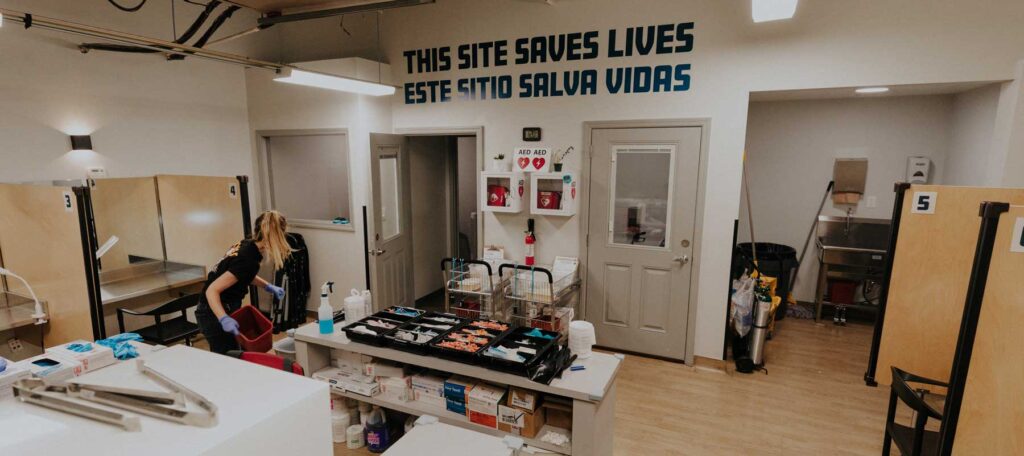The nation’s first overdose prevention center, operating in New York City, was used nearly 50,000 times and saved hundreds of lives in its first year, according to a new report.

OnPoint NYC, operator of the only locally-approved overdose prevention centers (OPCs) in the United States, recently released a baseline report with detailed findings from year one of their operation, the first report of its kind. The OPC model allows for trained professionals to be constantly present while those addicted to drugs can consume them in a safe, sterile environment. This allows professionals to intervene within seconds of the onset of overdose symptoms.
This model also plays a role in bringing public drug use inside, removing hazardous waste (particularly needles and other drug paraphernalia) from public spaces, and connecting people who use drugs with treatments and other health services.
First year findings for OnPoint NYC include:
- In just a single year, OnPoint staff intervened 636 times to prevent overdose death and other associated harms.
- 1 in 5 participants were referred to housing, detox, treatment, primary care, or employment supports. 100% of participants wanting detox or inpatient substance use treatment were connected to outside providers.
- The OPCs were used by 2,841 unique participants, who used the sites 48,533 times.
- Before the opening of the OPCs, NYC Parks reported collecting an average of 13,000 syringes per month from Highbridge Park – located across the street from the Washington Heights location. In the month following the opening of the OPCs, syringe collection dropped to 1,000.
- Emergency Medical Services (EMS) were only called 23 times out of 48,533 visits, freeing up capacity for first responders to respond to other calls.
- 83% of opioid overdoses were resolved without the need for naloxone through oxygenation, agitation, and close monitoring, strategies which are proven to be easier on the body.
The report is accompanied by a series of videos that feature conversations with participants who rely on the medical care and holistic services OnPoint provides.
“The findings from OnPoint NYC’s baseline report illustrate the effectiveness of safe, responsive spaces in preventing overdose death, improving health outcomes, and facilitating connections to other services and supports,” said Toni Smith, Director of New York State at Drug Policy Alliance. “Amid efforts to punish and arrest people who use drugs, these findings, along with accounts from participants, community members, and government officials, can serve as evidence that OPCs can and should be supported across the country as a life-saving tool in fighting our nation’s overdose crisis.”








